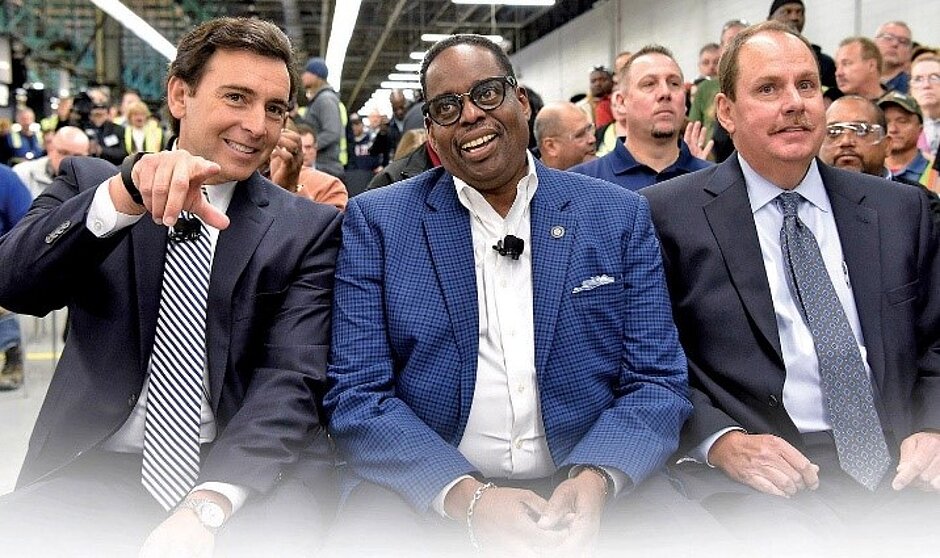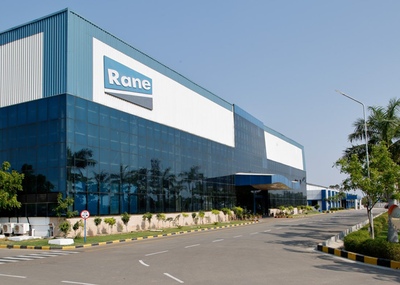On the surface, Ford Motor Co.'s decision to scrap a $1.6 billion Mexican plant and invest $700 million in Michigan is a public relations victory. It makes peace with the incoming Trump administration that repeatedly berated Ford on the campaign trail.
But in reality, the decision has more to do with good business practices namely, using plant capacity and coping with a drop in demand for small cars than any tariff threat or aggressive tweets from the president-elect.
Ford still plans to do what Donald Trump has criticized: build small cars in Mexico. It's just saving itself money by shoehorning Focus production into its plant in Hermosillo instead of sinking $1.6 billion into a new plant in San Luis Potosi to build cars that have lost ground to light trucks. CEO Mark Fields said last week that the new plan will save Ford roughly half a billion dollars in capital expenditures, although he declined to provide specifics.
Stephanie Brinley, senior analyst with IHS Markit, said, "The decision to build a plant is not made lightly, and the decision to cancel a plant is not made lightly. It's unlikely there's one driving force behind it. I think demand is a pretty big factor in this move; the SUV and crossover trend isn't going anywhere."
Fields said as much last week, telling reporters, "The main reason we're not building the plant is because we've seen a decline in the overall demand for small cars in the U.S.," although he said its U.S. investment news was a "vote of confidence" in Trump and his pro-growth policies.
Rationalizing capacity
But beyond demand Ford's U.S. car sales plunged 13 percent in 2016 the news helps the automaker to better use its North American assembly footprint.
Roughly half of Ford's plants last year were running on a full three-shift (or two-shift, three-crew) pattern, according to data from Oliver Wyman, a consulting firm that tracks automaker plant capacity. That means it had few options outside Flat Rock, Mich., which is running two shifts, to make an investment and add multiple products.
"Flat Rock was underutilized, so it makes complete sense in terms of their overall footprint and utilizing their investments," Michelle Hill, vice president of Oliver Wyman's automotive division, told Automotive News.
Brinley said Flat Rock's proximity to Ford's Dearborn, Mich., headquarters also helped because the site will be working on cutting-edge technologies.
UAW Vice President Jimmy Settles, director of the union's Ford department, told reporters last week that the decision is a nod to the plant's recent successful launches of the Ford Mustang and Lincoln Continental, but it also has to do with its unused capacity. He said he expects Flat Rock will jump to three shifts when the new products are added.
Hybrids and EVs
Those new products are a Mustang Hybrid, a fully electric small SUV with a 300-mile range and a yet-to-be-determined autonomous hybrid. Ford also announced last week it will make an F-150 Hybrid in Dearborn, two pursuit-rated hybrid police vehicles in Chicago and a Transit Custom plug-in hybrid in Europe.
The cars, trucks and vans are the first seven of 13 electrified vehicles Ford plans to bring to market by the end of the decade as part of a $4.5 billion bet on the future.
"Ford isn't dipping its toes into the electrified water anymore the automaker is doing a swan dive," said Michael Harley, senior analyst for Autotrader and Kelley Blue Book. He said the announcements "demonstrate an overflowing commitment towards a future of electrification."
Ford's Flat Rock investment, which will occur over the next four years, will result in a new Manufacturing Innovation Center that will sit next to the 2.9 million-square-foot plant. Fields said the site will become "one of the world's most flexible and high-tech manufacturing centers."
But some analysts are already questioning its success, citing low demand for electric vehicles and hybrids and the possibility that the Trump administration could ease emissions mandates.
"That plant will add 700 jobs," said Michelle Krebs, senior analyst with Autotrader.
"But if it's on vehicles that won't sell well, how sustainable are those jobs?"
Source: Autonews.com
×



